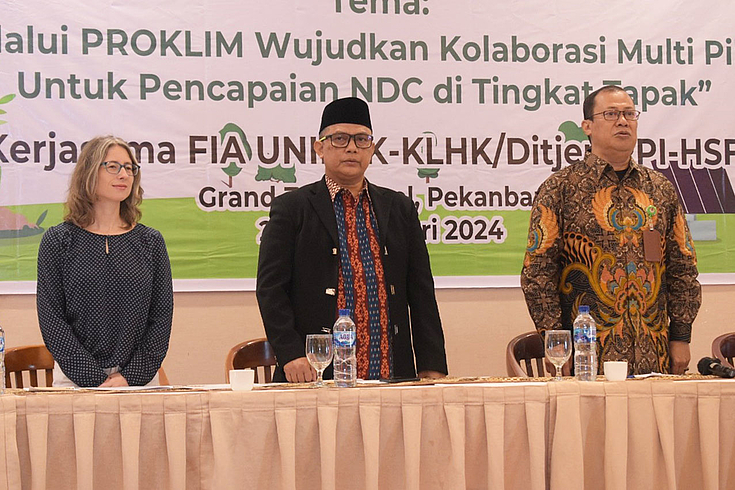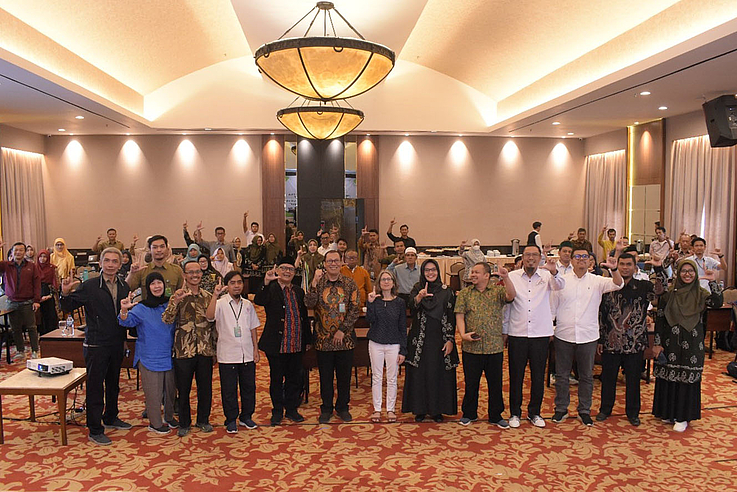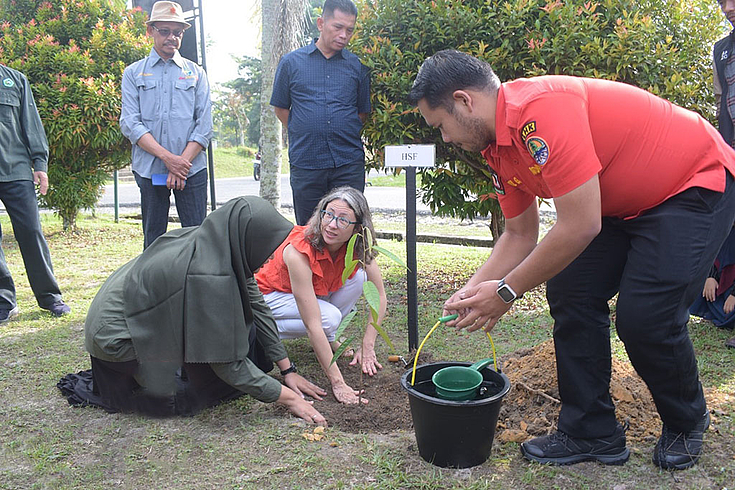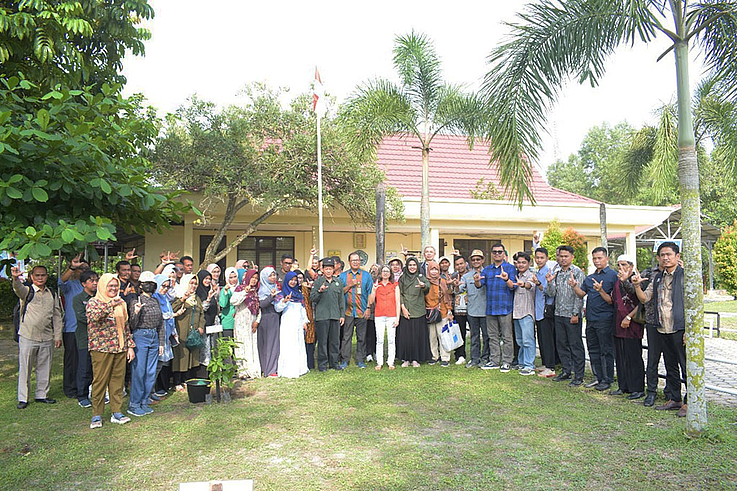Proklim as best practice example for Engagement of Non-Party Stakeholders
Raising Awareness and Action Against Climate Change in Riau Province
Opening session, from left to right, Resident Representative HSF (Julia Berger), Vice Rector of University of Lancangkuning (Dr Jeni Wardi, SE., MM) and Secretary of Ditjen PPI KLHK (Agus Rusly SPi. MSi.)
HSF
The Hanns Seidel Foundation (HSF) in Indonesia, in collaboration with the Directorate General for Climate Change Control (DJPPI) of the Ministry of Environment and Forestry and the University of Lancangkuning in Pekanbaru, Riau, organized a workshop titled "Collaboration of Stakeholders to Achieve NDC at the Site Level" in Pekanbaru on February 26-27, 2024.
The event was attended by 62 participants from various sectors, including academia, corporations, NGOs, civil society organizations, youth groups, climate village activists, and local government officials from Riau Province. Discussions focused on developing the Proklim program, exploring policy dimensions, sharing best practices for NDC contributions, and examining the roles of universities and the Pekanbaru-based climate change center in supporting Proklim initiatives.
Proklim, a national initiative led by the Ministry of Environment and Forestry, encourages community engagement in climate change adaptation and mitigation, recognizing local efforts in accordance with regional conditions. The program includes mitigation measures such as waste management, renewable energy utilization, energy conservation, and vegetation coverage, alongside adaptation strategies like drought, flood, and landslide control, food security enhancement, and climate-related disease management.
Julia Berger, Resident Representative of HSF, is planting a Durian tree for HSF during the Green Campus Launch
HSF
Notable speakers at the workshop included Agus Rusly from Ditjen PPI, Julia Berger from HSF, and Dr. Jeni Wardi from the University of Lancangkuning, who emphasized the importance of stakeholder collaboration in reducing emissions and enhancing climate resilience. The workshop also featured visits to the University of Lancangkuning to observe initiatives such as waste bank management, arboretums, and tree planting.
Outcomes of the workshop included recommendations for future collaboration of the university, HSF and DJPPI, the Proklim project in Pekanbaru as well as a Green-Campus declaration by the Faculty of Administration Science.




